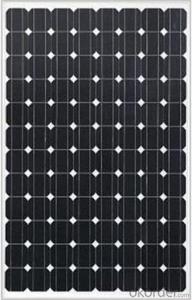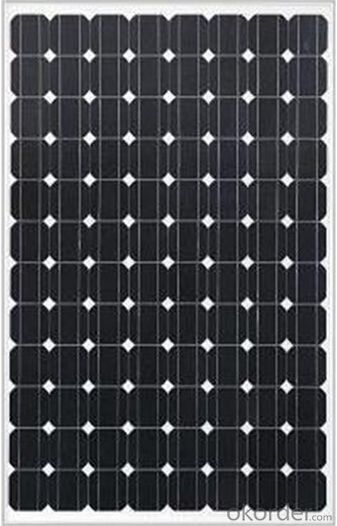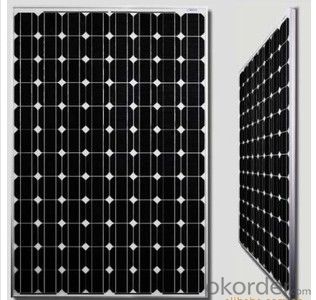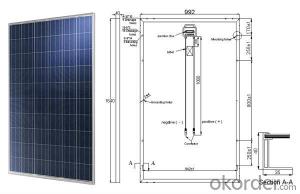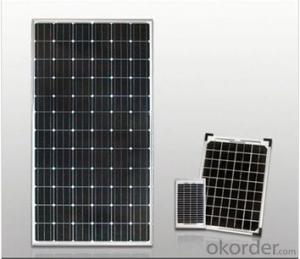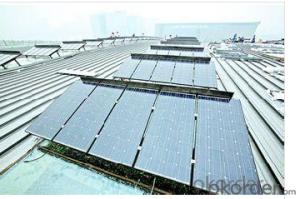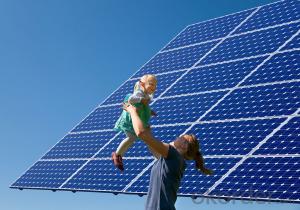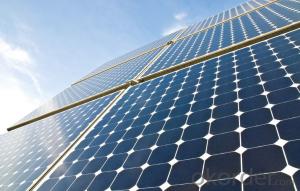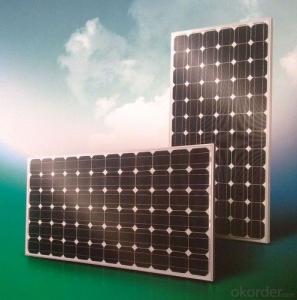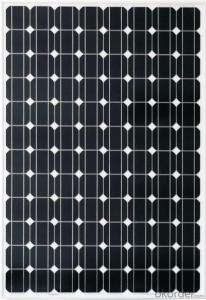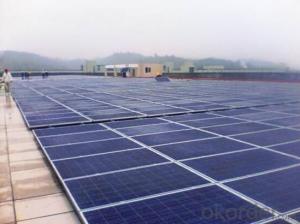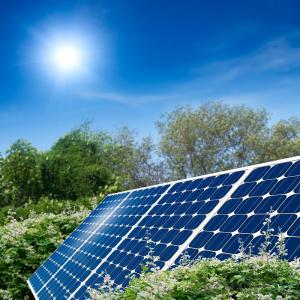Solar Panels in Oregon - Monocrystalline Silicon Solar Module 235-265w
- Loading Port:
- Shanghai
- Payment Terms:
- TT OR LC
- Min Order Qty:
- 30 pc
- Supply Capability:
- 500 pc/month
OKorder Service Pledge
OKorder Financial Service
You Might Also Like
1. Structure of Monocrystalline Silicon Solar Module 235-265W
As is known to all, monocrystalline silicon solar cell has the higher efficiency in comparison with polycrystalline silicon, so for the solar station project, people prefer monocrystalline silicon solar modules and for most of time, power output within 235W to 265W is popular on the market. We offer qualified monocrystalline silicon solar module to meet your demands with its nice performance.
2. Main Features of Monocrystalline Silicon Solar Module 235-265W
High efficiency of monocrystalline silicon solar cell of 125*125mm
Front glass with a thickness of 3.2mm for high transmission, low Iron and Tempered glass in case of heavy snow load
Anodized Aluminium Alloy frame against corrosion
Industry leading power output warranty (10 yesars/90%, 25 years/80%)
3. Monocrystalline Silicon Solar Module 235-265W Images4
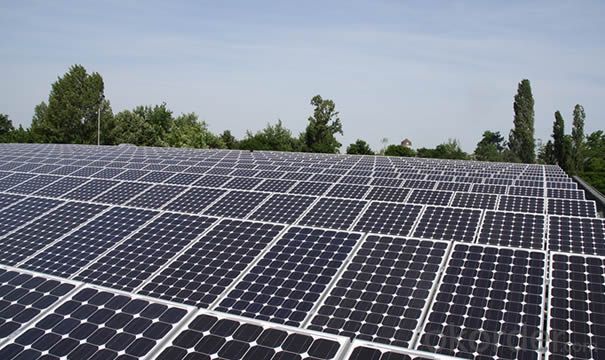
4. Monocrystalline Silicon Solar Module 235-265W Specifications
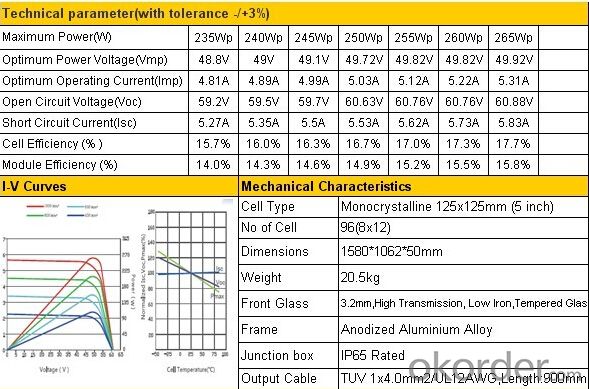
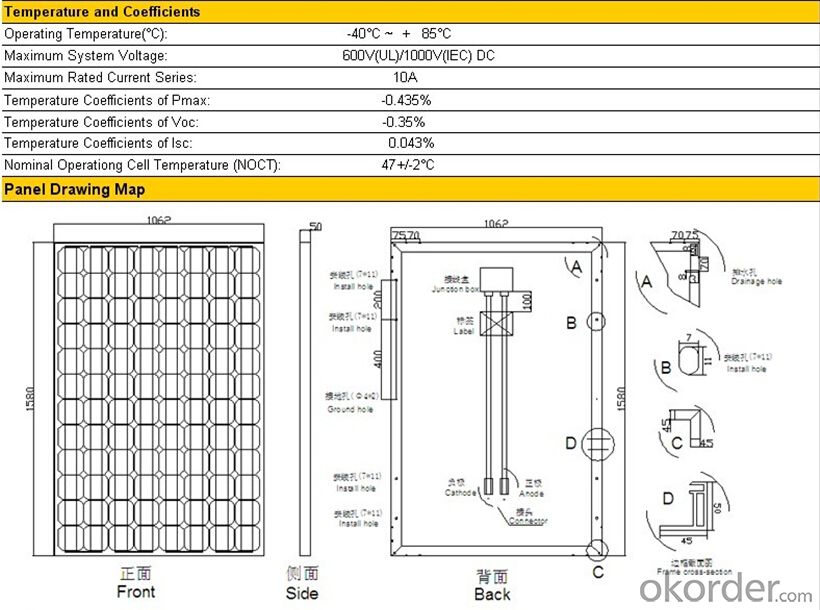
5. FAQ
Q1: How long for the product-material and processing technology warranty?
Re: 5 years.
Q2: Does your factory get certification?
Re: Yes, we have passed ISO9001:2000 Quality system management.
- Q: How do solar panels affect the property's energy consumption?
- Solar panels can significantly reduce a property's energy consumption by harnessing sunlight to generate electricity. By converting sunlight into clean, renewable energy, solar panels can offset much of the electricity that would otherwise be drawn from the grid. This leads to lower energy bills and a decreased reliance on fossil fuels, ultimately resulting in a more sustainable and eco-friendly energy consumption for the property.
- Q: Am using 800watts sukam inverter and have 55watts panel. What controller can i use to connect my solar system to have a max power . Already i have 200 Amp/hr battery
- Guide okorder /
- Q: I am designing a solar panel but i need to have maximum power output.How can i optimize the equation for power Total power=voltage * current to get maximum power.
- first place the panel so it is at right angles to the solar rays. Make sure none of the panel has any shade whatsoever. For best results use motor drives to keep it in that position as the sun moves across the sky. For overall maximum versus time, you need to be near the equator. Solar cells have a high internal resistance, so for maximum power transfer, you need a load of that same resistance. A good charge controller will use DC-DC converters to provide that load. .
- Q: Hello, i want to ask whether if you could make an improvised version of solar panel made from an old CD or DVD?Is it possible or not?Please give me steps on how to make one if you know(put aside the one you see on quot;ehow: How to Make a Solar Panel From CDswhich says a bit confusing for me :( )Why not?
- Cd Solar Panel
- Q: Can solar panels be used in remote areas without access to the grid?
- Yes, solar panels can be used in remote areas without access to the grid. Solar panels generate electricity by harnessing sunlight, and they can operate independently of the grid. This makes them an ideal solution for remote areas where setting up power lines and accessing the grid may be difficult or costly. Solar panels can provide a reliable and sustainable source of electricity in such areas, allowing for various applications like powering homes, schools, clinics, and even small businesses.
- Q: Can solar panels be used in areas with high levels of pollution from transportation?
- Yes, solar panels can be used in areas with high levels of pollution from transportation. While pollution can affect the performance of solar panels by reducing their efficiency, they can still generate electricity even in polluted areas. Regular cleaning and maintenance of solar panels can help mitigate the impact of pollution on their performance. Additionally, installing solar panels in areas with high pollution can contribute to reducing the carbon footprint associated with transportation and help improve air quality over time.
- Q: but is that per day, per hour or minute?How much watts does the average AC unit use?How much does an energy efficient lightbulb use?All in all let's hypothetically say we no longer use the electric company for our energy source, How many of these panels do you estimate it would take to supply our small home?
- It's virtually impossible to estimate how many panels would be required, without knowing your electrical usage, and where the house is located. I'll give our house as an example, but it could be off by a factor of 0 (not kidding) from yours. We have gas heat, no air conditioning, and no pool. We live in a dry, sunny area of California, and our roof is ideally oriented for panels. We would need 25 such panels, but we are grid-tied. If we wanted to disconnect completely from the electric company, we would need 20% more panels to compensate for battery inefficiencies. So, the estimate is 30 panels. Here are some caveats: ) Air conditioning, especially central air, could double or triple the estimate. 2) An area that gets less sun per year (northern US, for example) would need more panels. 3) Typically, when a house has grid electricity, they keep grid electricity when they get solar panels. It's much cheaper to use both in tandem. 4) That's a horrible price for the panel in the picture. You can find a 200-watt panel for less than that. 5) Other equipment is required besides the panels to run your house off solar. You can read up on it on the internet, or ask a professional solar installer for a free quote.
- Q: Hey was looking at a 5 watt 2 volt solar panel and was wondering if it'd be enough to power a regular light bulb. Also need to power a 5volt 6.5 amp pump for at most a minute at a time. So basically if I had this panel would I be able to plug a lamp into it and have it light for 5+ hours at a time with the possibility of running the pump? If not what size panel would I need?
- The specifications you give say the solar panel produces 5 watts at 2 volts (DC) so that isn't enough voltage to power an ordinary (20-volt) light bulb. You could get 0 of these panels and connect them in series so they put out a total of 20 volts and the total power available would be 50 watts. The panels would light the bulb that way, provided the bulb isn't over 50 watts and you can afford the panels. A panel does provide enough power for a 2-volt car light bulb less than 5 watts. However, the maximum current you can get from these panels is .25 amperes (5 watts divided by 2 volts = .25 A.) This isn't enough power to run your pump which takes 6.5 amperes - at 20 volts, that would be 780 watts. Another thing to check is the pump motor; many electric motors are designed to run on AC only and will be damaged if you try to run DC through them. Remember solar panels produce DC so the raw output from a panel will not work on an AC motor.
- Q: Does anyone own any and would you recommend them? right now i only own solar stake lights and i use them during the summer in my yard. But during the winter i take them out because they don't charge well. I live in toronto canada where it snows a lot during the winter, would it even be worth it to buy solar panels? Would they get covered with snow if the were mounted on my roof and get ruined? I plan on buying some when i purchase my own home.Any info would be appreciated:)
- Toronto would not be higth on my list of solar panel worthy locales. They are a bit pricey and are only cost effective in climates and locations with lots of direct sunlight. But if you could safely say you get direct light on your rood nearly every day, they could work. Wind turbines are getting better... especially omnidirectional dome type turbines. But again they are a bit costly, and work best if you believe you get direct wind for at least half the day. If your roof is reasonably flat and structurally sound, a solar hot water generator can be quite cost effective. Essentially it is a panel of corrugated metal under two thin transparencies of plastic. Water is pumped up to it and as it runs along the corrugation, the trapped heat under the plastic heats it up nicely. They are cheap to buy and easy to build and install, and will completely remove the need for a dedicated hot water heating system. Once again, it really depends on the precise location and construction of your house. Do a search for solar heat in your area. If it is cost effective, someone will be offering...
Send your message to us
Solar Panels in Oregon - Monocrystalline Silicon Solar Module 235-265w
- Loading Port:
- Shanghai
- Payment Terms:
- TT OR LC
- Min Order Qty:
- 30 pc
- Supply Capability:
- 500 pc/month
OKorder Service Pledge
OKorder Financial Service
Similar products
Hot products
Hot Searches
Related keywords
